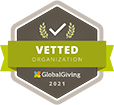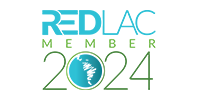
CONSIDERATIONS:
- Proponents are responsible for all costs associated with the preparation and presentation of proposals submitted to MAR Fund for evaluation on the framework of this request for proposals, and therefore there is no obligation on behalf of MAR Fund to cover such costs – either in whole or in part – or to provide any advance or compensation if their proposal is not selected.
- Proponents acknowledge and accept that the preparation of the proposal(s) does not constitute a financial obligation on behalf of MAR Fund, and therefore the economic and financial responsibility for the preparation of the proposal(s) is exclusive of the proponent(s), regardless of the selection process outcome.
- The selection process will be carried out in accordance with MAR Fund’s internal evaluation guidelines and the result will be final.
- Only applicants who advance to the next stage of the selection process will be contacted, and due to the number of applications, MAR Fund will not provide feedback to applicants.

Términos de Referencia (TdR)
Mesoamerican Reef Fund (MAR Fund)
Asistente de Comunicación
I. Antecedentes:
El Mesoamerican Reef Fund, Inc. (MAR Fund) es un fondo ambiental regional, establecido con el objetivo de apoyar la protección del Sistema Arrecifal Mesoamericano (SAM). Su misión es buscar, asegurar y facilitar financiamiento regional, fomentar alianzas y promover el desarrollo de capacidades para la conservación, restauración y uso sostenible de los ecosistemas marinos y costeros en el Arrecife Mesoamericano.
La Junta Directiva de MAR Fund está integrada por los fondos fundadores, un representante de la Comisión Centroamericana de Ambiente y Desarrollo (CCAD), expertos en conservación de cada país participante y colaboradores/donantes internacionales.
MAR Fund está constituido como una entidad no lucrativa en Estados Unidos, con estatus 501 (c) (3) y exonerado del pago de impuestos. Aunque se encuentra legalmente registrada fuera de la región, su propósito es financiar acciones de conservación y desarrollo sostenible en los cuatro países que comparten la ecorregión del SAM: México, Belice, Guatemala y Honduras. Desde el 2015 cuenta con una sucursal establecida en Guatemala, donde se ubica la oficina coordinadora.
MAR Fund moviliza y canaliza recursos financieros hacia socios que implementan acciones directamente en territorio, fortaleciendo la gestión de áreas marinas y costeras protegidas, llevando a cabo restauración de ecosistema y promoviendo medios de vida sostenibles en la región, entre otros. Sus beneficiarios incluyen organizaciones comunitarias, organizaciones no gubernamentales, instituciones gubernamentales, el sector académico y personas naturales. Distribuye recursos financieros a través de distintos mecanismos, desde pequeñas donaciones hasta proyectos de gran escala y de carácter multianual. Las acciones de MAR Fund se implementan a través de seis programas:
- Salvando nuestras áreas protegidas
- Pesca para el futuro
- Cambio climático
- Fondo Marino de Belice
- Agua limpia para el arrecife
- Economía azul y regenerativa
Adicionalmente, apoya y articula redes regionales, como la Red de Conectividad, la Red de Restauración de Arrecifes y la Red de Sitios de Agregaciones Reproductivas de Peces.
Proyecto Protección de los recursos marítimos en América Central III (Fase III).
En el marco del programa Salvando nuestras áreas protegidas, que se centra en el establecimiento y protección de una red interconectada de áreas marinas y costeras prioritarias, MAR Fund inició en diciembre 2021 la ejecución del proyecto “Protección de los recursos marítimos en América Central III (Fase III)”, dando continuidad a las Fases I y II. En las dos primeras fases se apoyaron nueve áreas protegidas marinas y costeras (APMC) prioritarias. En Fase III se apoyan 31 APMC a través de 20 proyectos.
Fase III es cofinanciado por la República Federal de Alemania a través del KfW. Su objetivo es la conservación y el uso sostenible de los recursos naturales en y entre las áreas protegidas marino costeras seleccionadas en el SAM. Los resultados esperados son: 1. Las APMC cuentan con mejores condiciones para la conservación de sus recursos naturales. 2. Medidas implementadas para el uso sostenible de los recursos naturales de las APMC con la participación de la población local. 3. Cooperación fortalecida entre actores clave para la conservación de la biodiversidad del SAM.
Más información sobre Fase III está disponible en este enlace.
Proyecto PROCARIBE+
Desde enero 2025, MAR Fund implementa el proyecto “Apoyando la creación de zonas de recuperación pesquera en la región del Sistema Arrecifal Mesoamericano” en el marco del programa UNDP/GEF/UNOPS Proteger y restaurar el capital natural de los océanos, aumentar la resiliencia y apoyar las inversiones en toda la región para un desarrollo socioeconómico azul sostenible (PROCARIBE+). El proyecto busca apoyar la creación/ampliación y manejo de zonas de recuperación pesquera (ZRP) en Belice, Guatemala y Honduras, mediante apoyo financiero y técnico a asociaciones/grupos pesqueros locales, gestores de áreas marinas protegidas y otros grupos interesados que operen en la región.
En este contexto, MAR Fund requiere contratar a un/a Asistente de Comunicación que brinde apoyo integral a las actividades de comunicación institucional y de los proyectos Fase III y PROCARIBE+.
II. Objetivos
a) Objetivo general
Apoyar al equipo de comunicación de MAR Fund en la planificación, implementación y seguimiento de las acciones de comunicación, asegurando una comunicación estratégica, coherente y oportuna que visibilice los resultados, fortalezca el posicionamiento institucional y evidencie el impacto regional.
b) Objetivos específicos
Comunicación institucional de MAR Fund:
- Fortalecer la visibilidad, posicionamiento y reconocimiento regional e internacional de MAR Fund.
- Comunicar los resultados programáticos e institucionales y el impacto de MAR Fund de manera clara, coherente y alineada a la estrategia general de comunicación.
Comunicación de Fase III y PROCARIBE+:
- Comunicar la importancia de conservar y proteger el SAM, sus APMC y sus ecosistemas interconectados.
- Dar visibilidad a las comunidades que gestionan responsablemente sus recursos naturales marinos y costeros y contribuyen a la conservación de las APMC del SAM a través de prácticas sostenibles.
- Visibilizar a los administradores y coadministradores de las APMC beneficiarias de Fase III que están implementando soluciones eficaces y/o innovadoras frente a las amenazas actuales al SAM.
- Desarrollar y fortalecer alianzas con los equipos de comunicación de donantes y gobiernos para incrementar el alcance de comunicación de los resultados de Fase III.
- Comunicar la importancia de las ZRP para la restauración de las pesquerías en el SAM.
- Dar visibilidad al taller de intercambio con la República Dominicana sobre ZRP, buenas prácticas y lecciones aprendidas, con el fin de fortalecer el conocimiento regional sobre la gestión pesquera.
III. Responsabilidades
El/la Asistente de Comunicación apoyará la planificación, producción, difusión y seguimiento de las acciones de comunicación de MAR Fund, así como de los proyectos Fase III y PROCARIBE+, en coordinación con los equipos internos y en alineación con los lineamientos institucionales y de los donantes.
a) Planificación y gestión de la comunicación
- Apoyar la implementación y actualización de la Estrategia de Comunicación de MAR Fund y de los Planes de Comunicación de Fase III y PROCARIBE+.
- Contribuir a la definición de mensajes clave, públicos objetivo y enfoques narrativos, en español e inglés.
- Gestionar y dar seguimiento al calendario editorial y de publicaciones, asegurando coherencia y oportunidad en los mensajes.
b) Producción y difusión de contenidos
- Elaborar, revisar, adaptar y editar contenidos institucionales y de proyectos para distintos canales y formatos (redes sociales, boletines, sitio web, presentaciones, materiales informativos y otros productos de comunicación).
- Desarrollar contenidos específicos de FASE III y PROCARIBE+, tales como notas informativas, historias de impacto, testimonios, entrevistas y materiales de difusión.
- Proporcionar insumos para informes técnicos y narrativos, reportes a donantes y materiales de rendición de cuentas.
- Coordinar la difusión de contenidos a través de los canales institucionales de MAR Fund.
- Mantener actualizadas las plataformas digitales institucionales (Facebook, Instagram, LinkedIn y sitio web).
- Apoyar en la preparación, organización y difusión de seminarios en línea, eventos virtuales y actividades de comunicación regionales, incluyendo aquellas desarrolladas en el marco de PROCARIBE+.
- Asegurar el cumplimiento del Manual de Identidad Gráfica de MAR Fund en todos los productos de comunicación.
c) Documentación, relaciones públicas y eventos
- Documentar actividades, resultados, buenas prácticas y lecciones aprendidas de los proyectos, en coordinación con el equipo técnico y los puntos focales nacionales.
- Recopilar, sistematizar y archivar información, fotografías, materiales audiovisuales provenientes de proyectos, eventos y actividades institucionales.
- Elaborar y difundir comunicados de prensa y notas informativas sobre eventos, intercambios, talleres, visitas de campo y otros hitos relevantes.
d) Coordinación institucional
- Mantener una coordinación permanente con la Coordinadora de Comunicación de MAR Fund y con otras áreas de la organización.
- Coordinar con la Unidad Ejecutora de Fase III, socios y equipos técnicos para asegurar consistencia en los mensajes.
- Participar en reuniones internas, procesos de planificación, capacitaciones y otras actividades institucionales.
- Mantener organizada y actualizada la información y los archivos en la carpeta compartida asignada en MAR Fund Drive.
e) Salvaguardas
- Asegurar que todos los procesos, productos y acciones de comunicación cumplan con las salvaguardas ambientales y sociales de MAR Fund, así como con las políticas institucionales.
f) Otras funciones
- Desarrollar otras tareas relacionadas con la comunicación que sean requeridas por MAR Fund o los donantes y que contribuyan a una comunicación más efectiva de los avances, resultados e impactos institucionales y de los proyectos.
IV. Supervisión
El/la Asistente de Comunicación trabajará bajo la supervisión directa de la Coordinación de Comunicación de MAR Fund, y mantendrá coordinación permanente con el equipo del Proyecto Fase III y otras áreas de la organización.
V. Duración del contrato
Posición de tiempo completo. La distribución estimada del tiempo será:
- Comunicación institucional MAR Fund y PROCARIBE+ (50%)
- Comunicación Fase III (50%)
El contrato tendrá una duración de 12 meses, sujeto a renovación previa evaluación, con un período de prueba de tres meses.
Si la persona reside en Guatemala, el contrato de trabajo se realizará por un plazo definido, de acuerdo con los términos regulados por la legislación guatemalteca.
VI. Pago
Los honorarios se determinarán según la experiencia del/ de la candidato/a. El pago se realizará de forma mensual contra factura, incluyendo los impuestos correspondientes. Los gastos de viaje asociados a actividades de comunicación serán cubiertos por MAR Fund.
El contrato incluirá seguro médico y de vida durante su vigencia.
VII. Lugar de trabajo
El puesto podrá estar basado en cualquiera de los países del Arrecife Mesoamericano (México, Belice, Guatemala, Honduras). La persona trabajará de forma remota desde su lugar de residencia. En caso de residir en la Ciudad de Guatemala, deberá asistir a la oficina cuando sea requerido.
VIII. Calificaciones y competencias
- Formación académica en ciencias de la comunicación, relaciones públicas, marketing, diseño o áreas afines.
- Al menos tres años de experiencia en funciones similares (se valorará experiencia en ONGs).
- Experiencia en conservación costero marina, ciencias ambientales o áreas naturales protegidas, preferible.
- Excelentes habilidades de redacción y edición en inglés y español.
- Experiencia como vocero/a o portavoz y presentador o maestro de ceremonias, deseable.
For more information, please download the Terms of Reference – Click here
IX. Procedimiento de aplicación
Las personas interesadas y que cumplan con el perfil deberán enviar:
- Currículum Vitae.
- Ensayo máximo de una página indicando la razón por la cual está interesada/o en esta consultoría y por qué considera que es la persona más adecuada para el puesto, en inglés y en español.
- Portafolio con trabajos relevantes.
- Tres referencias (nombre, posición y correo electrónico), al menos dos de ellas de supervisores actuales o anteriores.
X. Fecha límite y contacto
Favor de enviar la información solicitada a más tardar el 09 de febrero de 2026 al siguiente correo electrónico: lherrera@marfund.org

Request for Bids
Non-Consulting Services
Contracting Entity: Mesoamerican Reef Fund Inc. (MAR Fund)
Project: Protection of Maritime Resources in Central America III (Phase III)
Contract Title: External Audit Services Contract for the Project “Protection of Maritime Resources in Central America III” for the periods January to December of the years 2025–2026
Country: Guatemala
Loan No./Credit No./Grant No.: BMZ-No. 2017.6892.8
RfB N.º: RfB-001-MARFund-FIII-2025
Issued on: January 6, 2026
- MAR Fund has received financing from KfW Entwicklungsbank to finance the cost of the project Protection of Maritime Resources in Central America III (Phase III), and intends to apply part of the funds to make payments under the contract for the provision of “External Audit Services for the Project ‘Protection of Maritime Resources in Central America III’ for the periods from January to December of the years 2025–2026, BMZ No. 2017.6892.8 (Phase III)”.
- MAR Fund invites eligible Bidders to submit Bids, in accordance with the specifications set out in the Terms of Reference, which form an integral part of this document, for the procurement of External Audit Services for the Project “Protection of Maritime Resources in Central America III” for the periods from January to December of the years 2025–2026. A single contract will be signed covering both audit periods, and each audit process will be carried out annually over an approximate period of two and a half months. The exact start and completion dates of each audit will be defined by mutual agreement between the parties at the official commencement of each process.
- The bidding process will be conducted through national/regional competitive procurement using the Request for Bids (RfB) method, as set forth in the World Bank Procurement Regulations for IPF Borrowers, January 2020 Edition (Procurement Regulations), and is open to all eligible Bidders as defined in the Procurement Regulations.
- Interested eligible Bidders may request further information from MAR Fund, Attn.: Ana Beatriz Rivas Chacón (Project Coordinator, Protection of Maritime Resources in Central America III), at the following email address: arivas@marfund.org The link to access the Bidding Documents for virtual review is as follows: Bidding documents.
- Bids must be submitted in accordance with the bid submission protocol (included at the end of this document) no later than February 6, 2026 at 18:00 hours (Guatemala time, Central America). Bids received after the deadline will be rejected. The opening of the Bids will be conducted virtually in accordance with the provisions set out in the bid submission protocol.
- All Bids must be accompanied by a Bid Securing Declaration in accordance with the form provided for this purpose in the RfB.
- Attention is drawn to the Procurement Regulations, which require the Borrower to disclose information on the ultimate beneficial ownership of the awardee as part of the Contract Award Notice, using the Ultimate Beneficial Ownership Disclosure Form included in the Bidding Document.
- The address or addresses referred to above are as follows:
Mesoamerican Reef Fund Inc. (MAR Fund)
Ana Beatriz Rivas Chacón
Project Coordinator, Protection of Maritime Resources in Central America III
22 avenida 0-59, zona 15, Vista Hermosa II, Guatemala. 01015
(502) 2369 3188 y 2369 1978
Email: arivas@marfund.org
website: www.marfund.org




